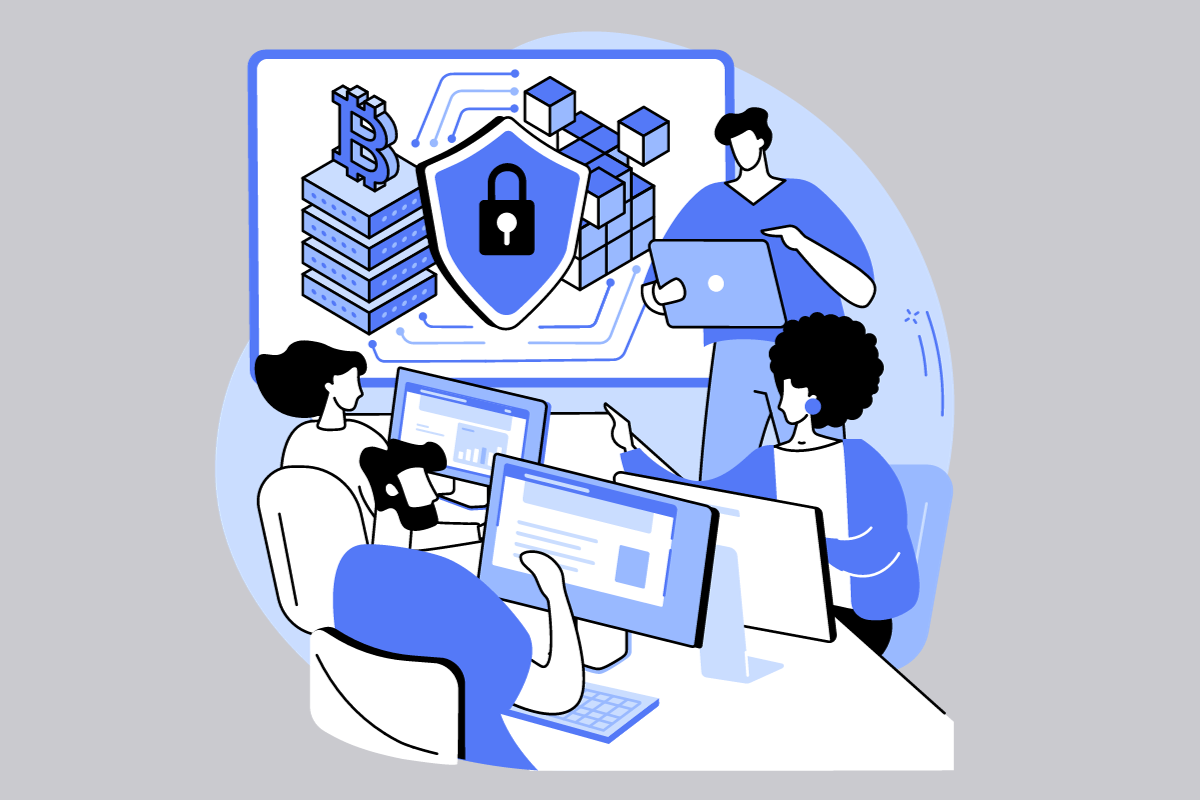
Guide To A Booming Industry- Recognized Cybersecurity Certifications
Posts by Alan TaylorFebruary 6, 2024
Staying ahead of the curve in the rapidly changing cybersecurity landscape is more than an advantage. It’s a requirement.
Earning industry-recognized certificates is a great way to demonstrate your expertise in this dynamic field and make you stand out.
This guide will help you understand the cybersecurity course and provide insights on the best courses for achieving coveted credentials.
1. Certified Information Systems Security Professional
The CISSP is a gold standard in cybersecurity. It shows a thorough understanding of cybersecurity best practices and principles.
Consider enrolling in classes that cover security and risk, asset security, communication and network, and other domains to prepare for the CISSP.
You should look for programs that incorporate real-world scenarios and case studies so that you can apply your theoretical knowledge to a practical context.

2. Certified Ethical Hacker
The CEH certification is a testament to your expertise in ethical hacking, which has been gaining popularity.
You should look for courses that provide hands-on training in penetration testing and vulnerability assessment.
The course should include interactive labs and simulations that allow you to practice your skills in an environment where they are controlled.
3. CompTIA Security
The CompTIA Security+ certificate is ideal for cybersecurity professionals at the entry-level. It covers fundamental principles of information safety.
Choose a program covering network security, cryptography, and threat detection. You should look for courses focusing on practical applications using simulations and real-world scenarios. This will ensure you are well-prepared for the certification examination.
4. CISM (Certified Information Security Manager
The CISM is a valuable certification for those who want to be in managerial positions within cybersecurity.
The courses leading to CISM should include information security governance, incident response, risk management, and other domains.
Look for programs emphasizing business-focused cybersecurity concepts, focusing on strategic decision-making.
5. OSCP (Offensive Security Certified Professional
OSCP is highly respected by ethical hacking and penetration testing professionals. Choose courses that are similar to the OSCP exam.
You should look for programs with virtual labs that allow you to practice in a controlled setting. Focusing on practical challenges and real-world scenarios is essential to master the material and pass the OSCP exam.
How To Choose The Right Cybersecurity Training
Depth Of Curriculum and Coverage
Search for courses that cover all the domains of certification. A strong curriculum will ensure you have a solid understanding of the material and prepare you for the certification exam and real-world challenges.

Labs and Practical Application
The best cyber security training courses incorporate practical labs, applications, and theory. Virtual environments and simulations allow you to practice concepts realistically, improving your problem-solving abilities and practical knowledge.
Expertise in Instructor Training
The expertise of your course instructor largely influences your learning experience.
Look for courses taught by instructors who have relevant certifications and industry experience. Instructors’ insights and real-world experiences greatly enhance the quality of a course.
Flexibility & Accessibility
When choosing a course, consider your schedule and preferences for learning cyber security.
You should look for programs that offer flexibility and allow you to study at your own pace. It is essential to have access, whether it’s through online platforms or virtual classrooms.
Reviews and Reputation
Read reviews of previous students and research the reputation of course providers.
Positive feedback on a well-regarded course will increase the likelihood of it delivering its promises and providing a quality learning experience.
Conclusion
Earning industry-recognized cybersecurity certifications is a critical step for anyone looking to advance their career in the fast-paced world of cybersecurity.
These certifications are not just pieces of paper; they represent a validation of your knowledge and skills in a field that is constantly evolving to counter emerging threats.
To make the most of your certification journey, it’s important to carefully consider various factors.
First and foremost, think about your career goals. What specific role in cybersecurity do you aspire to?
Certifications can vary widely in terms of their focus, from network security to ethical hacking and beyond.
By aligning your certifications with your career objectives, you can ensure that you’re building the right skill set for your desired role.
Next, evaluate the depth of the curriculum offered by the certification program.
A comprehensive curriculum not only helps you pass the certification exams but also equips you with the practical skills necessary to tackle real-world cybersecurity challenges.
Look for programs that provide hands-on experience, case studies, and opportunities to apply what you’ve learned in simulated environments.
Practical application is key. Cybersecurity is not a theoretical discipline; it’s about defending against real threats and vulnerabilities.
Seek out certification courses that emphasize hands-on labs and exercises. These practical experiences will better prepare you for the complexities of the job and provide a deeper understanding of the tools and techniques you’ll use in your cybersecurity career.
Moreover, remember that cybersecurity is a constantly changing field. What’s relevant today may not be tomorrow.
Consider certifications from reputable organizations that update their content regularly to reflect the latest threats and technologies. Staying current is essential in this industry.
Making informed decisions is fundamental to a successful certification journey. Research the various certification options, read reviews, and seek advice from experienced professionals.
Don’t rush the process; take your time to select the certifications that align with your goals and provide the most value.
Ultimately, earning cybersecurity certifications should be seen as an investment in your future.
By carefully choosing the right certifications, considering the depth of the curriculum, emphasizing practical application, and staying current in your knowledge, you can become a highly valuable asset to the cybersecurity industry.
Your certification journey is not just about obtaining a title; it’s about becoming a skilled and sought-after professional who can protect organizations from ever-evolving cyber threats.
